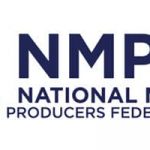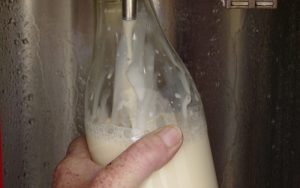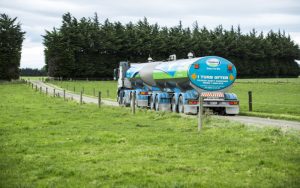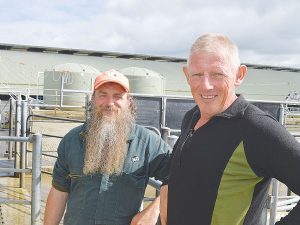
In all, 75 formal warnings issued after annual inspections by rural compliance team.
Seven percent of the farms inspected by the Waikato Regional Council’s rural compliance team – 33 properties – were found to be significantly non-compliant for the 2023-2024 year.
The team said 67% (315) of farms inspected achieved full compliance, 16% (75) had low-risk non-compliance such as storing effluent solids on an unsealed surface or minor ponding at the irrigator, and 10% (49) had moderate non-compliance such as runoff or ponding from an irrigator that has not made its way to surface water.
Of the 3666 dairy farms the council has on record in the region, 472 individual farms were physically inspected by the rural compliance team monitoring officers over the year.
Some farms required repeat or multiple inspections, resulting in a total of 502 physical inspections being completed.
Also, 243 farms were subject to an aerial inspection, a number of which subsequently required a physical inspection.
Overall, it meant a total of 648 farms were inspected either physically or by aerial assessment.
The data was presented to the council’s environment performance committee in its Dairy Effluent Compliance report when the committee met on August 14.
Rural compliance team leader and report author Evan Billington said it is not possible to know the current state of effluent compliance across all dairy farms in the region.
“However, if 7% is representative of the region as a whole, this would equate to 256 dairy farms that may be significantly non-compliant with dairy effluent regulations on any given day.”
He said the team recognises that many dairy farms in this region are highly compliant and have invested heavily in good, fit-for-purpose effluent infrastructure and management practices.
“We also know that there is general support from the dairy industry that all poor performers in this area need to be accountable for their actions and incentivised, through various mechanisms, to do their part in the sustainable management of our natural and physical resources.”
Enforcement action undertaken in response to non-compliance resulted in 75 formal warnings, 57 abatement notices being served and 19 files forwarded to the investigations team where the threshold to consider a prosecution has been reached.
A significant number of minor breaches are dealt with by education or require no further enforcement action.
The report says the majority of serious non-compliance is associated with one of three factors: inadequate or poorly maintained effluent infrastructure, poor management practices including a lack of awareness and training, and a failure to prioritise and monitor effluent management on farm.
You can now read the most important #news on #eDairyNews #Whatsapp channels!!!
🇺🇸 eDairy News INGLÊS: https://whatsapp.com/channel/0029VaKsjzGDTkJyIN6hcP1K

























